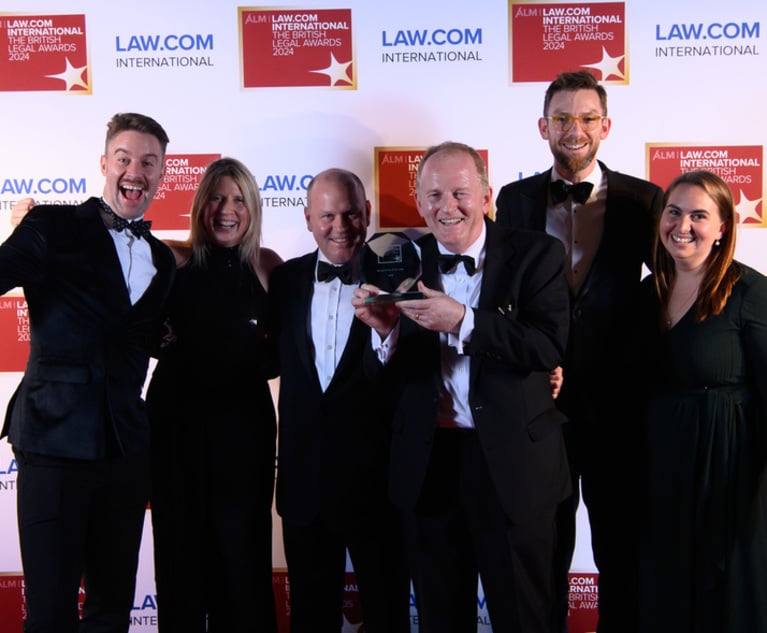What Law Firms (And Men) Can Do to Improve Gender Diversity, According to Top Female Lawyers
The likes of Karen Seward, Natasha Harrison and Melissa Butler also talk about the main challenges facing female lawyers and the most common mistakes and misconceptions affecting women in law.
March 06, 2020 at 04:13 AM
11 minute read
 Female lawyers give their advice on what firms can do to encourage gender equality through the ranks.
Female lawyers give their advice on what firms can do to encourage gender equality through the ranks.
Law firms are constantly seeking new ways to address the gender imbalances within their firms. This International Women's Day, Law.com International asks women at the top of their game in the U.K. market what firms — and their male colleagues — can do to help bridge the gap in inequality for the next generation of female lawyers.
What is the one most practical thing a law firm can do to help women rise through the ranks?
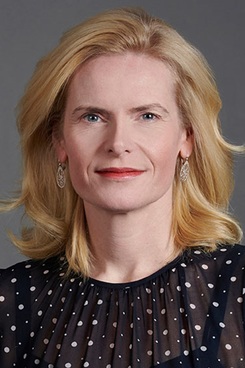 Jane Edwarde, Slaughter and May
Jane Edwarde, Slaughter and MayJane Edwarde, head of real estate at Slaughter and May: "There are a few practices within law firms that could be improved to promote a healthier balance. Sending emails on a Sunday evening can unfortunately be quite a common practice, for example. These might well be tasks that are meant to be actioned on Monday, but they instead arrive unwelcome on a Sunday evening at 6pm!
"Similarly, scheduling conference calls at a time that's more manageable for everyone, rather than 8am or 7pm is helpful. This won't always be possible, but in instances where it is, these are small practical things that make our days more manageable and which add up over the course of a career."
Samantha Lake Coghlan, co-chair of Goodwin Procter's London office: "Law firms need to get to the point where they pivot their diversity and inclusion focus from education to meaningful action. I am lucky to be at a firm that has been pioneering in this regard: from being the first AmLaw 100 firm to have a female leader in the U.S. to our involvement in the 'Move the Needle' initiative, which sets public, ambitious diversity goals to achieve in the next five years.
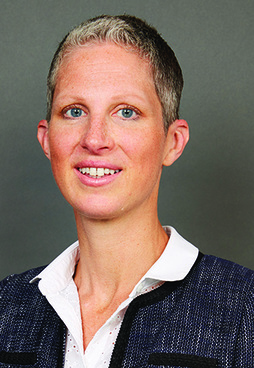 Samantha Lake Coghlan, Goodwin Procter
Samantha Lake Coghlan, Goodwin Procter"Firms need to go beyond lip service and make commitments to D&I goals – there is still a fear of failure over setting targets."
Jules Quinn, employment partner at King & Spalding: "Listen to your clients. The recent GC for Diversity and Inclusion - a statement of support – shows the direction of travel here. Follow the money! Clients are frequently the biggest advocates for diversity and inclusion and sending work or taking work away because of gender diversity in any particular firm will move the needle."
Melissa Butler, London managing partner at White & Case: "Coaching and mentoring are incredibly valuable. Having support and guidance from someone in a more senior position as you move through key stages of your career can really help focus the mind on what goals and ambitions you have and how you're going to achieve them.
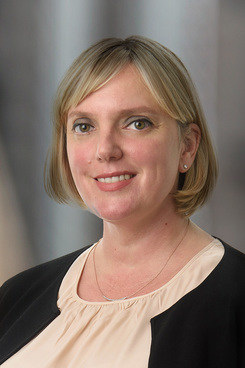 Melissa Butler, White & Case
Melissa Butler, White & Case"The responsibility cannot all be on the women lawyers"
"Closely aligned to that, we've introduced sponsors for women lawyers on track for partnership and have programmes for women partners to support them in business development and preparation for leadership roles. But the responsibility cannot all be on the women lawyers. Firms have a responsibility to look at how they evaluate and promote female lawyers and ensure women are being given a fair shot."
Karen Seward, global litigation head at Allen & Overy: "We need to open up our minds to what inclusion really means on the ground looking holistically at a team; nurturing what individuals are good at, but at the same time as accepting their weaknesses and factoring in how those weaknesses can be supplemented by the skills of others.
"We have to challenge each other to move from looking at potential talent and thinking, 'I don't see any value in you so you don't have any,' to 'I don't see any value in you, what am I missing?'"
Kathleen Russ, senior partner at Travers Smith: "The work allocation system is crucial to the success of any lawyer's career. Applying careful thought to the fairness of the processes around the work allocation system, will pay dividends in retaining and then promoting talented women in private practice."
What can men in the industry do to help their female colleagues' career progression?
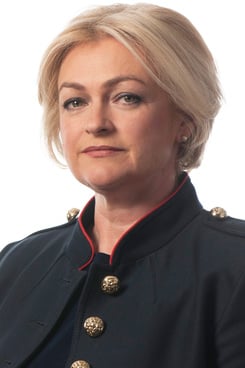 Jules Quinn, King & Spalding
Jules Quinn, King & SpaldingSandra Wallace, DLA Piper joint managing director for the U.K. and Europe: "Be honest and acknowledge that good intentions alone won't get us where we need to be. Firms should not be afraid to set clear goals to improve the representation of women."
Natasha Harrison, managing partner at Boies Schiller Flexner: "Take parental leave, take responsibility for childcare and other outside-of-work requirements so that the perception moves from it being a 'woman's thing' to a 'person's thing'."
Quinn, King & Spalding: "Mentors and role models are important but we need to be joined up in this; we need the help of men because they make up the majority of partners and leaders.
"Diversity has a proven positive impact on the financial metrics of an organisation. It is in everybody's interests to promote diversity and female talent. Most men are not sexist but many men do not think about the absence of women on pitch teams or client teams or slates for partnership promotion."
"Take responsibility for childcare and other outside-of-work requirements so that the perception moves from it being a 'woman's thing' to a 'person's thing'"
 Sandra Wallace, DLA Piper
Sandra Wallace, DLA PiperSeward, A&O: "Be open minded to difference, ask questions and listen to understand, not just to reply, think about inclusiveness and difference before taking actions, and above all, challenge their own prejudices.
Edwarde, Slaughter and May: "The law is a steep learning curve, but it's a fairly quick one — you are an experienced lawyer at 5-10 years qualified whereas in some industries, it might take 20 years plus to be regarded as senior. If you can keep people engaged, interested and enjoying their role – and managing the work life balance – for a relatively short period of time, then there's a good chance they will get to the point when they can be considered for promotion.
"If women stay during those crucial development years, they have every chance of being promoted. By supporting lawyers in those early years, a more senior lawyer can make a huge difference to a junior lawyer's career trajectory."
What do you see as the most common mistakes made by women pursuing a career in law, and the most common misconceptions about the industry? What is the best way to rectify them?
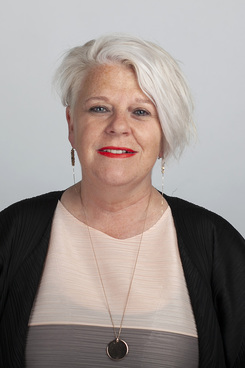 Karen Seward, Allen & Overy
Karen Seward, Allen & OverySeward, A&O: "Honestly, it is really unhelpful to think of this in terms of women making mistakes. Asking this question leads us to the conclusion that the problem is with the women, that we need to change and the solutions lie in 'fixing the women'. We are 50% of the population!
"One practical thing women need to try to do is to have courage to bring our whole selves to work. Disguise is dead. Be completely authentic. No one wears Armani suits anymore. Whatever angle you are observed from, be the same.
"There is nothing wrong with being polished, and well prepared; indeed this is essential. But we have to be real – I profoundly disagree with the suggestion we all have to 'lean in'."
 Natasha Harrison of Boies Schiller Flexner
Natasha Harrison of Boies Schiller FlexnerHarrison, Boies Schiller: "One of the biggest misconceptions is that you have to be aggressive, ruthless and (seemingly) unemotional in order to succeed (i.e. all characteristics commonly associated with men rather than women).
"To correct those misconceptions leaders should be authentic and not afraid to promote different value systems; firms should also ensure there are strong role models (male and female) at all levels of seniority, including mid-senior associates. Young lawyers may find it hard to relate to or emulate a very senior partner, whereas a junior partner or senior associate may be more immediately accessible."
Butler, White & Case: "The women I see pursuing a career in law are doing a lot of things right — they're hard working, ambitious and are building strong networks to support them as they progress through their careers. And there is no one way or right way to pursue a career in law, and we all make mistakes or have second thoughts about decisions we've made. The important thing is to back yourself and trust your instincts."
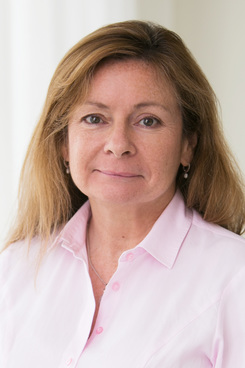 Frances Murphy, Morgan, Lewis & Bockius
Frances Murphy, Morgan, Lewis & BockiusFrances Murphy, London managing partner at Morgan, Lewis & Bockius: "Perhaps more so in years past women that it was a sign of weakness to ask for help or that they may be passed over for promotion unless they were visible at all times in the office or if they could not spend evenings socialising. These fears may still exist depending on the law firm environment she is in.
"From our perspective, whilst providing an exceptional client service is of course imperative, it is essential that all lawyers receive the mentoring and support they require and the appropriate flexible working opportunities so that they feel they can achieve their best. This is something we care passionately about for all of our partners and employees."
Russ, Travers Smith: "Many women assume that, to get on, it is enough to be an expert in your field. But being an expert isn't always enough to win work; instead to win work you also need to be recognised as an expert. Women are not always good at putting themselves forward in order to be recognised.
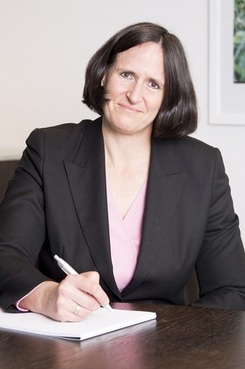 Kathleen Russ, Travers Smith
Kathleen Russ, Travers Smith"Women have to find their own way to promote themselves; if you want to have a successful career in the law this isn't something you can opt out of doing. But you have to promote yourself in an authentic way which is true to yourself.
"Bragging may be anathema to many women; it certainly is to me! Instead many women choose to showcase their skills in a different, and often more low-key, way. It's important to watch how other senior women promote themselves and to learn from it but always to remember that the goal is to develop your own style rather than seeking to slavishly follow the style others have developed for themselves."
What do you think is the biggest challenge facing women in law at the moment?
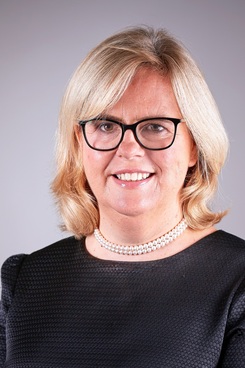 Nicola Dagg, Kirkland & Ellis
Nicola Dagg, Kirkland & EllisNicola Dagg, intellectual property partner at Kirkland & Ellis: "Law firms cannot assume that placing women in leadership positions will organically inspire the new generation of female lawyers to strive for the same positions in the future. It requires changing the perception, both by men and women, of women as leaders.
"As a senior business leader and litigator, I have faced a variety of conscious and unconscious gender biases. To change that bias, I believe law firms need to see more women as leaders. It also means not just hiring female lawyers and saying the problem is "fixed." It means finding ways to retain and promote women.
"As a senior business leader and litigator, I have faced a variety of conscious and unconscious gender biases."
Quinn, King & Spalding: "Patience and a passive reliance on time to change the imbalance. We need action. We have been talking about a lack of female partners and leaders since I joined the profession almost thirty years ago.
"Yes, we have taken many steps forward, but the imbalance and loss of female talent remains. The rate of change is too slow and we need to have the policies in place to promote diversity and inclusion and to drive positive action to ensure that we do what we say we will do."
Read more:
Why So Few Female Barristers Are Instructed
Billable-Hour Model Hurts Women's Careers, Say Female Lawyers
This content has been archived. It is available through our partners, LexisNexis® and Bloomberg Law.
To view this content, please continue to their sites.
Not a Lexis Subscriber?
Subscribe Now
Not a Bloomberg Law Subscriber?
Subscribe Now
NOT FOR REPRINT
© 2025 ALM Global, LLC, All Rights Reserved. Request academic re-use from www.copyright.com. All other uses, submit a request to [email protected]. For more information visit Asset & Logo Licensing.
You Might Like
View All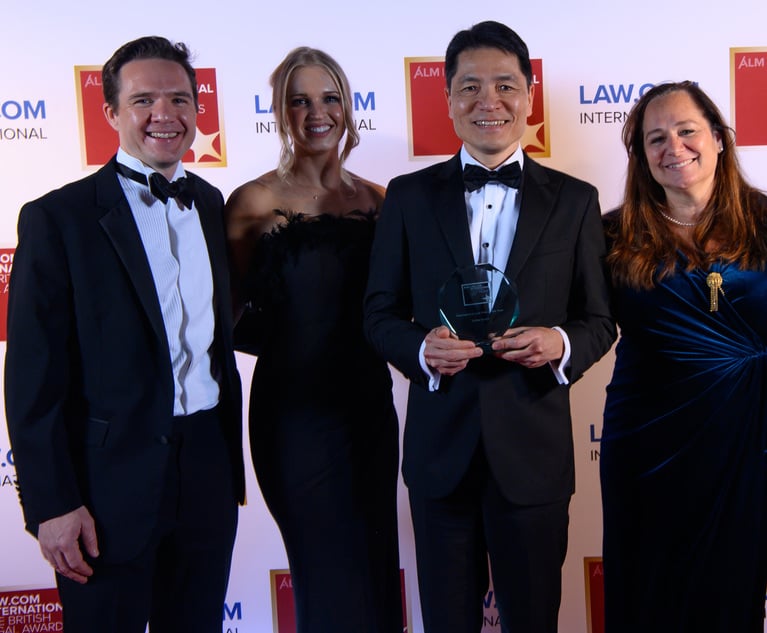
International Law Firm of the Year: A Q&A with Sidley Austin's London Managing Partner
5 minute read
Inside Travers Smith's AI Training, Development Efforts

From Olympic Aspirations to Legal Innovation: Tom Dunlop's Journey to Founding Summize
8 minute readLaw Firms Mentioned
Trending Stories
- 1'It's Not Going to Be Pretty': PayPal, Capital One Face Novel Class Actions Over 'Poaching' Commissions Owed Influencers
- 211th Circuit Rejects Trump's Emergency Request as DOJ Prepares to Release Special Counsel's Final Report
- 3Supreme Court Takes Up Challenge to ACA Task Force
- 4'Tragedy of Unspeakable Proportions:' Could Edison, DWP, Face Lawsuits Over LA Wildfires?
- 5Meta Pulls Plug on DEI Programs
Who Got The Work
Michael G. Bongiorno, Andrew Scott Dulberg and Elizabeth E. Driscoll from Wilmer Cutler Pickering Hale and Dorr have stepped in to represent Symbotic Inc., an A.I.-enabled technology platform that focuses on increasing supply chain efficiency, and other defendants in a pending shareholder derivative lawsuit. The case, filed Oct. 2 in Massachusetts District Court by the Brown Law Firm on behalf of Stephen Austen, accuses certain officers and directors of misleading investors in regard to Symbotic's potential for margin growth by failing to disclose that the company was not equipped to timely deploy its systems or manage expenses through project delays. The case, assigned to U.S. District Judge Nathaniel M. Gorton, is 1:24-cv-12522, Austen v. Cohen et al.
Who Got The Work
Edmund Polubinski and Marie Killmond of Davis Polk & Wardwell have entered appearances for data platform software development company MongoDB and other defendants in a pending shareholder derivative lawsuit. The action, filed Oct. 7 in New York Southern District Court by the Brown Law Firm, accuses the company's directors and/or officers of falsely expressing confidence in the company’s restructuring of its sales incentive plan and downplaying the severity of decreases in its upfront commitments. The case is 1:24-cv-07594, Roy v. Ittycheria et al.
Who Got The Work
Amy O. Bruchs and Kurt F. Ellison of Michael Best & Friedrich have entered appearances for Epic Systems Corp. in a pending employment discrimination lawsuit. The suit was filed Sept. 7 in Wisconsin Western District Court by Levine Eisberner LLC and Siri & Glimstad on behalf of a project manager who claims that he was wrongfully terminated after applying for a religious exemption to the defendant's COVID-19 vaccine mandate. The case, assigned to U.S. Magistrate Judge Anita Marie Boor, is 3:24-cv-00630, Secker, Nathan v. Epic Systems Corporation.
Who Got The Work
David X. Sullivan, Thomas J. Finn and Gregory A. Hall from McCarter & English have entered appearances for Sunrun Installation Services in a pending civil rights lawsuit. The complaint was filed Sept. 4 in Connecticut District Court by attorney Robert M. Berke on behalf of former employee George Edward Steins, who was arrested and charged with employing an unregistered home improvement salesperson. The complaint alleges that had Sunrun informed the Connecticut Department of Consumer Protection that the plaintiff's employment had ended in 2017 and that he no longer held Sunrun's home improvement contractor license, he would not have been hit with charges, which were dismissed in May 2024. The case, assigned to U.S. District Judge Jeffrey A. Meyer, is 3:24-cv-01423, Steins v. Sunrun, Inc. et al.
Who Got The Work
Greenberg Traurig shareholder Joshua L. Raskin has entered an appearance for boohoo.com UK Ltd. in a pending patent infringement lawsuit. The suit, filed Sept. 3 in Texas Eastern District Court by Rozier Hardt McDonough on behalf of Alto Dynamics, asserts five patents related to an online shopping platform. The case, assigned to U.S. District Judge Rodney Gilstrap, is 2:24-cv-00719, Alto Dynamics, LLC v. boohoo.com UK Limited.
Featured Firms
Law Offices of Gary Martin Hays & Associates, P.C.
(470) 294-1674
Law Offices of Mark E. Salomone
(857) 444-6468
Smith & Hassler
(713) 739-1250





